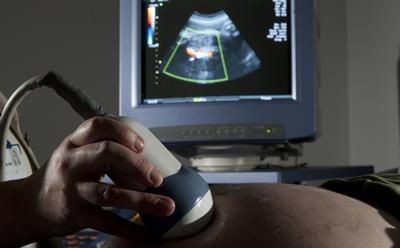Weight change between pregnancies is linked to having premature and large at birth babies

Research from the University of Southampton has identified that women who are not overweight and lose significant weight (more than 3 kg/m2) between their first and second pregnancies could have a greater risk of a premature birth than those who maintained a stable weight. This link was evident only in women whose body mass index was within the recommended range of 18.5 and 24.9 kg/m2 at the start of their first pregnancy. One in a hundred of these women lost more than 3 kg/m2 between their pregnancies.
The relationship is not necessary causal – for example, ill general health or stress could lead to both weight loss and premature birth. Nevertheless, these findings could help midwives and other health professionals identify women who may have greater odds of premature birth.
The findings, published in the scientific journal PLOS ONE, did not show a link between weight loss and premature birth in women who were overweight at the start of their first pregnancy, or in women who gained weight between pregnancies. Nevertheless, another study carried out by the same research team and published in BMJ Open has demonstrated that a higher proportion of babies born to women who gained significant weight between pregnancies were too large at birth compared to women who lost weight or remained at a stable weight between pregnancies. Women who gained a significant amount of weight by the start of their second pregnancy were more likely to be smokers, unemployed, with lower educational attainment and to have a longer interpregnancy interval, compared with those who maintained a stable weight between pregnancies.
The study also found that overweight women who lost weight after a large-for-gestational-age birth (LGA) in their first pregnancy were less likely to have another large baby in their second pregnancy. LGA birth carries increased risk for an induced delivery or caesarean section and obesity for the child later in life.
In these studies, the researchers found losing weight was much less common than gaining weight between pregnancies. They show that about half of all women gain weight between their first and second pregnancies compared to under 1 in 6 women losing weight during that period. They therefore recommend that the optimal situation is to be within the recommended weight range (18.5 and 24.9 kg/m2) at the start of each pregnancy.
Dr Nisreen Alwan of the Faculty of Medicine at the University of Southampton, who led the research said “The period between pregnancies is a key window of opportunity to improve health given the close contact families have with health and care professionals, but there has been little research into effective ways to support mothers maintain a healthy weight in this period.”
“It is standard practice to weigh mothers at the start of pregnancy and a comparison to their weight at the start of previous pregnancies could flag up any risks, giving mothers and health professionals the chance to take steps to improve pregnancy and later health outcomes.”
Her team, which included Grace Grove and Nida Ziauddeen, studied data from 2003 to 2018 of around 15,000 women who received antenatal care and lived in Southampton and surrounding parts of Hampshire during at least two of their pregnancies. As well as studying the mothers’ weight, they looked at other social and behavioural factors such as education, employment and smoking.
The research was supported by research grants from the Academy of Medical Sciences and Wellcome Trust, and the National Institute for Health Research Southampton Biomedical Research Centre. It is now hoped that these findings and future research into this subject will encourage healthcare professionals and commissioners to provide better support to women between pregnancies, helping them to reach and maintain their optimal weight, leading to better health outcomes for both mothers and children.
